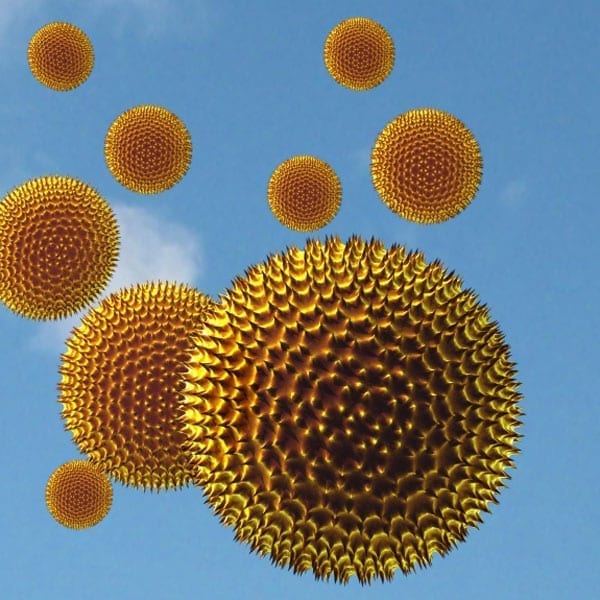Eat to beat summer sneezes
Nutritionist Juliette Kellow takes a look at what foods to eat – and avoid – if you suffer from the sneezing, itchy eye hell of hayfever.

The thought of long summer months fills many of us with dread. According to a report from the Royal College Of Physicians, the incidence of common allergies in the UK has tripled over the past 20 years – and seasonal allergic rhinitis, or hayfever as it’s more commonly known, is no exception.
Allergy UK reveals that at least 15% of Brits suffer from this unpleasant condition, which causes itchy, red, watery eyes, frequent sneezing, a dry, itchy throat, headaches and a constant runny or blocked nose.
Pollen is the main cause of hayfever:
February-April:
Symptoms are most likely to be caused by tree pollen
May-July
Grass pollen is usually the culprit
August-September
The pollen of weeds and nettles is generally to blame
For city-dwellers, traffic pollution seems to exacerbate the problem. According to Allergy UK, studies in Japan suggest that people who live within 200 metres of a main road are more likely to develop an allergy to pollen than those who live further away. This may be because diesel exhaust particles make pollen more allergenic and encourage the immune system to make more of the antibody responsible for hayfever.
Pollen causes misery in sufferers by presenting itself to the body as a foreign substance, and the consequent release of histamine causes many acute hayfever symptoms.
Conventional treatments for allergies include antihistamines, which block the action of histamine and so help to ease symptoms. But certain foods may also help to keep these symptoms at bay.
What to eat
Eating more vitamin C-rich foods, such as citrus fruits and their juices, berries, blackcurrants ,kiwi fruit, peppers, tomatoes and new potatoes, may help, as this vitamin acts as a natural antihistamine.
A naturally-occurring plant chemical called quercetin, found in onions, apples, grapes, tea, citrus fruits, cherries, blueberries, blackberries, strawberries and raspberries, may also help to ease hayfever symptoms. Studies have shown it helps to reduce inflammation and, like vitamin C, blocks the release of histamine.
Omega-3 fats, found in good amounts in oily fish, such as salmon, trout, sardines, fresh tuna, herring and mackerel, may help to ease suffering because they act as anti-inflammatories. Much of the research has looked at the role of omega-3 fats and the development and treatment of asthma. However, a study of more than 300 adults found that high intakes of oily fish were associated with lower rates of hayfever.
Eating five servings of fruit and vegdaily may also help to improve hayfever symptoms by reducing inflammation. When the immune system malfunctions, as is the case with allergies, free radicals are generated and these can cause inflammation. Antioxidant nutrients, found in good amounts in most fruit and veg, help to mop up an excess of free radicals.
When it comes to easing congestion, adding ginger to food may help. Ginger is a natural antihistamine and decongestant, and appears to work its magic by widening constricted bronchial tubes.
There’s little evidence to suggest that hayfever is actually caused by specific food allergies, although food allergy sufferers may also have hayfever. But if you are a victim, you might be better off swapping your usual glass of red wine for a G&T. Research shows that red wine stimulates the release of histamine and so may add to hayfever symptoms.
Wine and beer also contain sulphites, which can cause allergic reactions in some people, especially those with asthma. So if relaxing with a glass in the garden gives you itchy eyes, a blocked nose and an attack of the sneezes, don’t automatically assume that pollen is the culprit.
Subscribe to our magazine
Food stories, skills and tested recipes, straight to your door... Enjoy 5 issues for just £5 with our special introductory offer.
Subscribe
Unleash your inner chef
Looking for inspiration? Receive the latest recipes with our newsletter